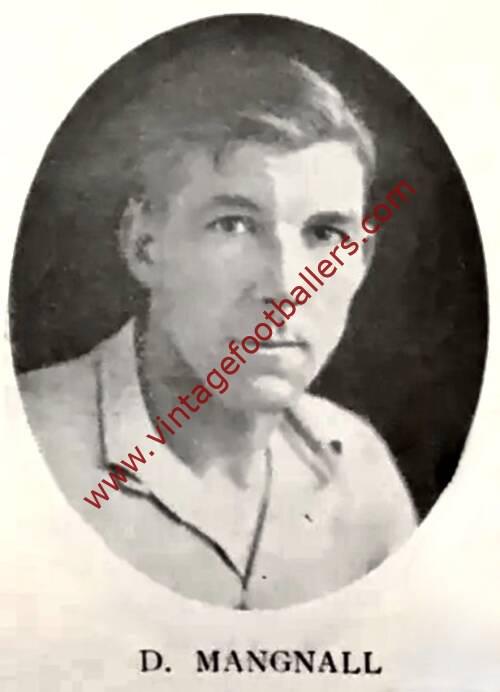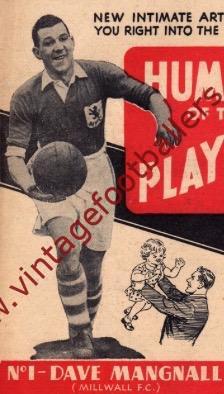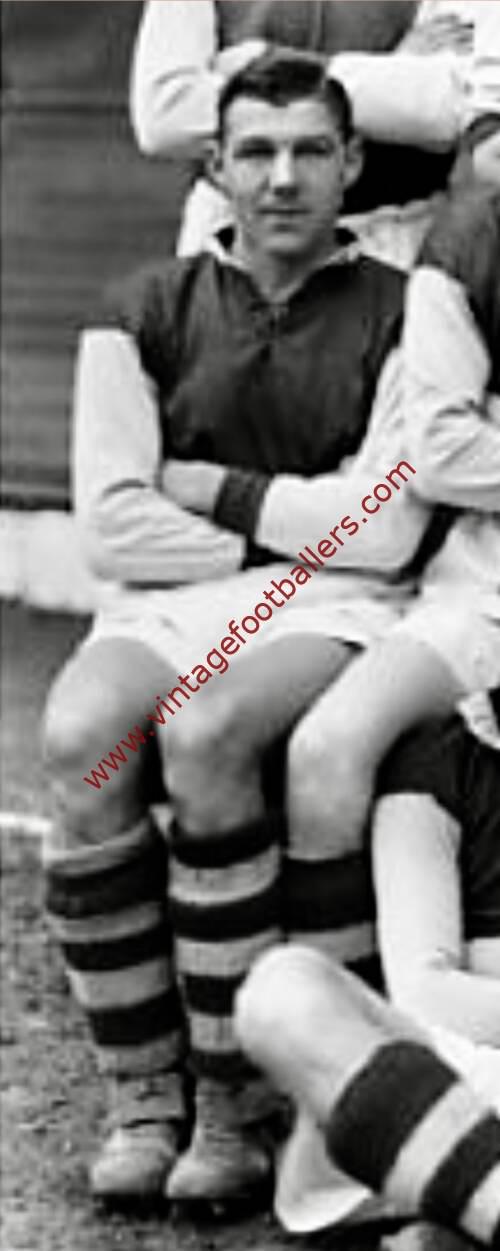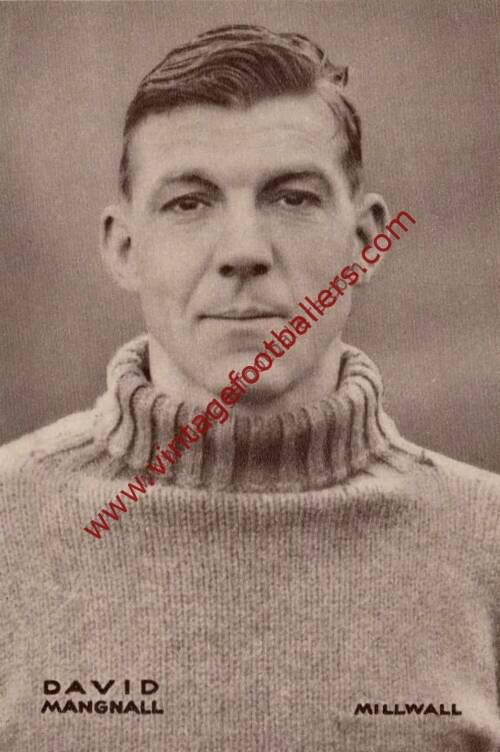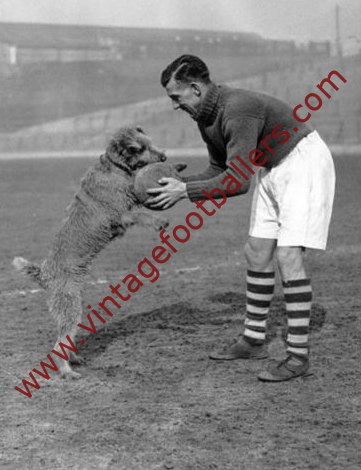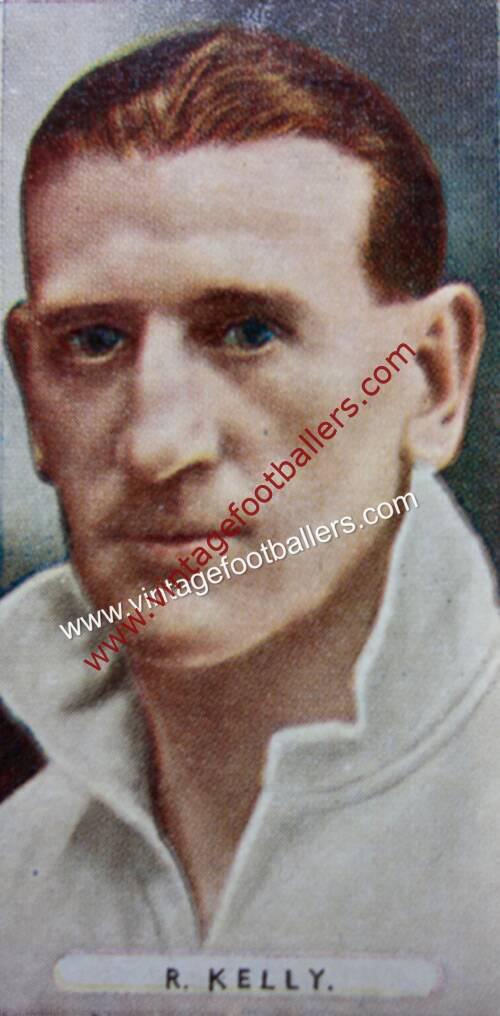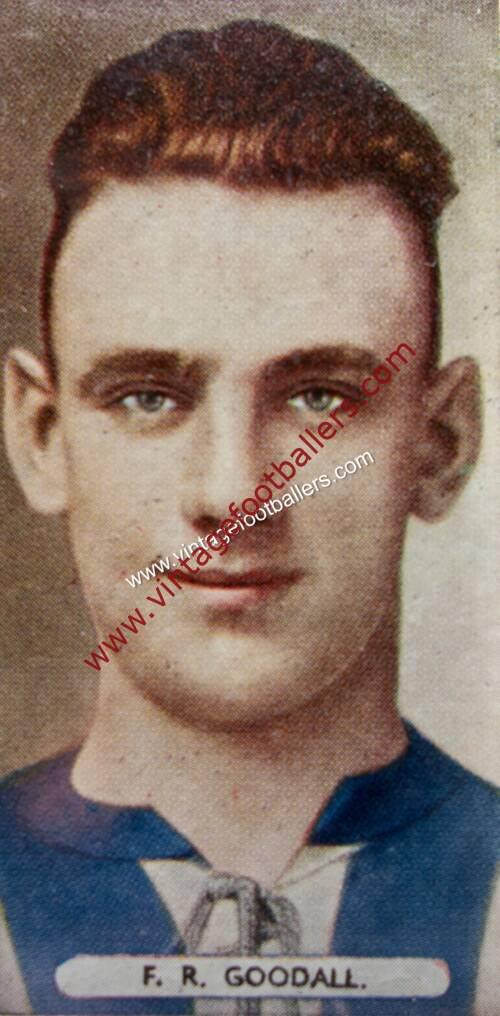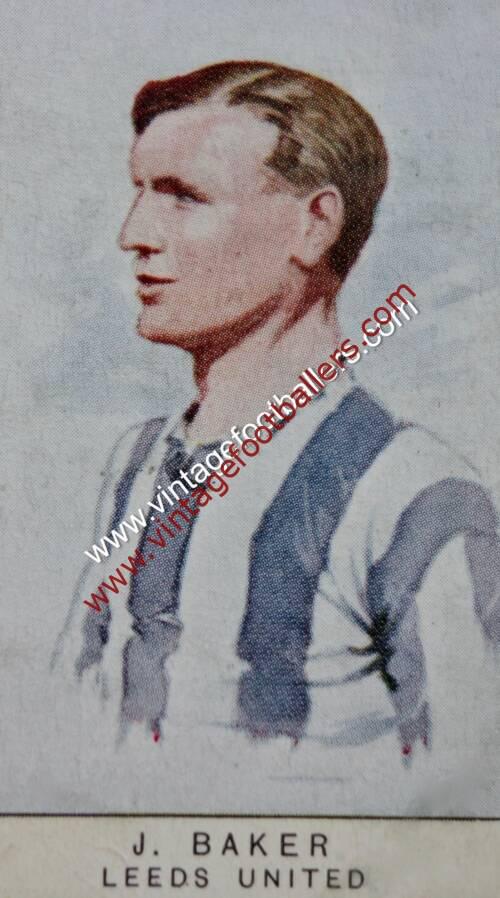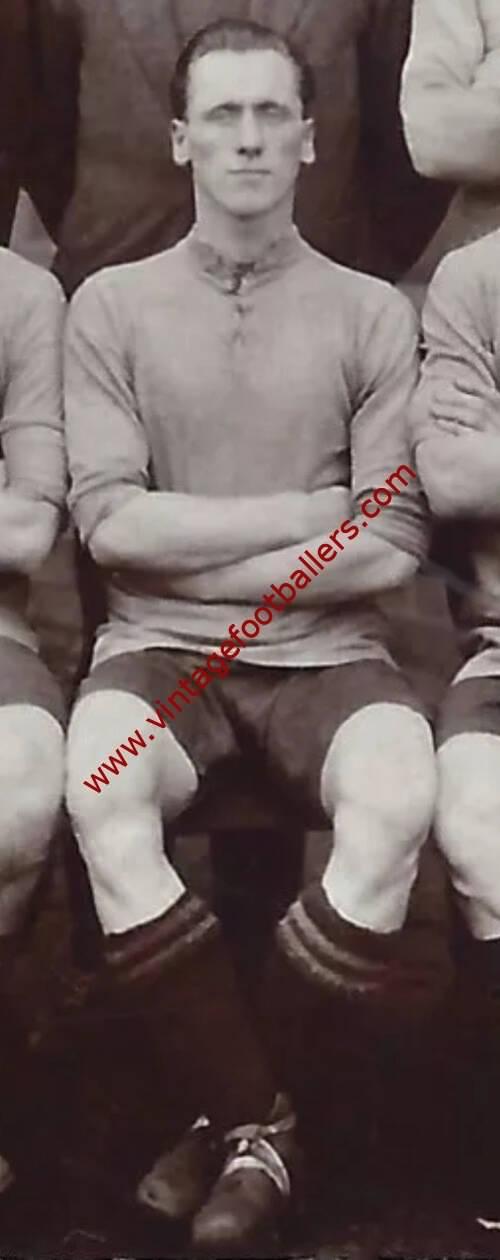Please choose your photo size from the drop down menu below.
If you wish your photo to be framed please select Yes.
Note: 16″x 20″not available in a frame.
Images can also be added to accessories. To order please follow these links
£8.95 – £49.95
Please choose your photo size from the drop down menu below.
If you wish your photo to be framed please select Yes.
Note: 16″x 20″not available in a frame.
Images can also be added to accessories. To order please follow these links
Wigan, Lancashire born centre or inside forward Dave Mangnall was a busy and athletic centre forward who started his career with junior teams Maltby New Church in 1921 and Maltby Main Colliery Welfare from 1922. After trials for Huddersfield Town and Rotherham County proved unsuccessful, he spent 1923-24 as an amateur on the books at Doncaster Rovers without making a first team appearance. In 1924 he returned to play for Maltby Main Colliery Welfare before signing for Leeds United in November 1927. He made a big impression for United’s lower league sides scoring ten goals in a Northern Midweek League game in which United trounced Stockport County 13-0 on 25th September 1929. Four days after his ten goal feat he was given his Football League debut against Burnley. Just a few weeks later, after 6 goals in 9 games, Leeds parted company with him when top-flight rivals, Huddersfield Town, needing a replacement for George Brown, offered a then hefty £3,000 for Mangnall in December 1929.
Mangnall was neither the tallest nor heaviest player in the game, his vital statistics being five feet ten inches and eleven stone, but he was both quick and athletic and refused to be intimidated by bigger opponents. As well as being fearless in the air, he possessed a brilliantly deceptive body swerve which gave him room to shoot with both feet from a variety of angles.
The Terriers, who had turned Mangnall down after he came on trial as a teenager, had his services from then until February 1934, when there were question marks over his recovery from an injury which had kept him out for most of the 1932-33 campaign, and he left Leeds Road for Birmingham. He had scored over 40 goals in the reserves in 1930-31 as they won the Central League Championship before breaking into the first team with any regularity, but when he did he lit the blue touch paper.
The highlight was a goal blitz in 1931-32, when he managed 42 goals in 39 appearances as Town finished 4th in the League Championship, a total which included a 5 goals haul against Derby County in a 6-0 win in November 1931, 4 in an FA Cup tie win over Oldham Athletic in January 1932, and hat-tricks against Sheffield Wednesday, Liverpool and Aston Villa. In all there were nine goals from the centre forward in a cup run which also accounted for Queens Park Rangers, 5-0 on 23rd January 1932 and Preston North End, 4-0 on 13th February 1932 and took the Terriers to the quarter finals, when, on 27th February 1932, a club record attendance of 67,037 saw Arsenal win 1-0.
After scoring 73 goals in 90 appearances for Huddersfield Town, he was sold to Birmingham in February 1934 with doubts over his fitness after recovering from a serious injury suffered in 1932-33, despite a hat-trick in an FA Cup win over Plymouth Argyle a few weeks before the transfer in February 1934. His time at Birmingham was relatively uneventful, yielding a mere 15 goals in 39 appearances albeit these included another hat-trick against Liverpool at Anfield on 13th October 1934. He was then signed by Second Division West Ham United in March 1935 as a replacement for Vic Watson. He scored 29 goals in 37 appearances for the Hammers and was their top scorer for the 1935-36 season with 23 goals including hat-tricks against Nottingham Forest and Norwich City, before joining Millwall in the summer of 1936 for £1,000.
Mangnall helped Millwall, who were competing in the Third Division (South) at the time, into the FA Cup semi-finals in 1937. Millwall’s giant-killing feats earned Mangnall the title of “David the Giant Killer” as a procession of clubs came to The Old Den and were devoured by The Lions, with Mangnall scoring 9 goals in the cup run. Following a 6-1 victory away to Aldershot in which Magnall scored 4 goals, Millwall were drawn at home in every round. After a 7-0 defeat of Gateshead, it was the turn of Second Division Fulham. Millwall sent them packing 2-0 with Mangnall scoring the first. First Division Chelsea were the next team to try their luck at The Den. Chelsea were more embarrassed than Fulham when Millwall sent them home 3-0 losers. Derby County, the First Division runners-up the previous season, were the next team to visit. Millwall’s record crowd of 48,672 packed into The Den to watch Mangnall score first, with his striking partner McCartney netting the winner four minutes from time.
However, when Millwall drew Manchester City, nobody thought they even had a chance of beating them. Millwall got the better of City’s star studded team, with Mangnall scoring a goal in each half, making Millwall the first Third Division team in the history of the competition to reach the semi-final. Millwall’s dream was ended when they were paired with Sunderland in the semi final, played at neutral Leeds Road and although Magnall scored yet again, The Lions went down 2-1. There was some consolation for Millwall as they won promotion to the Second Division the following season aa Third Division (South) Champions, with Mangnail scoring another 20 goals in the campaign including hat-tricks against Torquay United and Gillingham.
On 16th May 1939, after 47 goals in 72 appearances for The Lions, and just before the outbreak of the Second World War, he joined Queen’s Park Rangers as a player, scoring 3 goals in the opening 3 “void” peacetime games of the 1939-40 League season, including a double on his debut against Watford, and on 29th April 1944 he was offered the manager’s role. Although initially reluctant to take it on, he did so, and he built a team that in the 1947-48 season, with George Smith as captain, won the Third Division (South) Championship by four points to give QPR their first-ever promotion. After four tough seasons in the Second Division they were relegated back to the Third Division, where they were to remain for fifteen seasons before Alec Stock led them to promotion again. After relegation in May 1952, Mangnall left the club and left the business of football.
| Weight | N/A |
|---|
